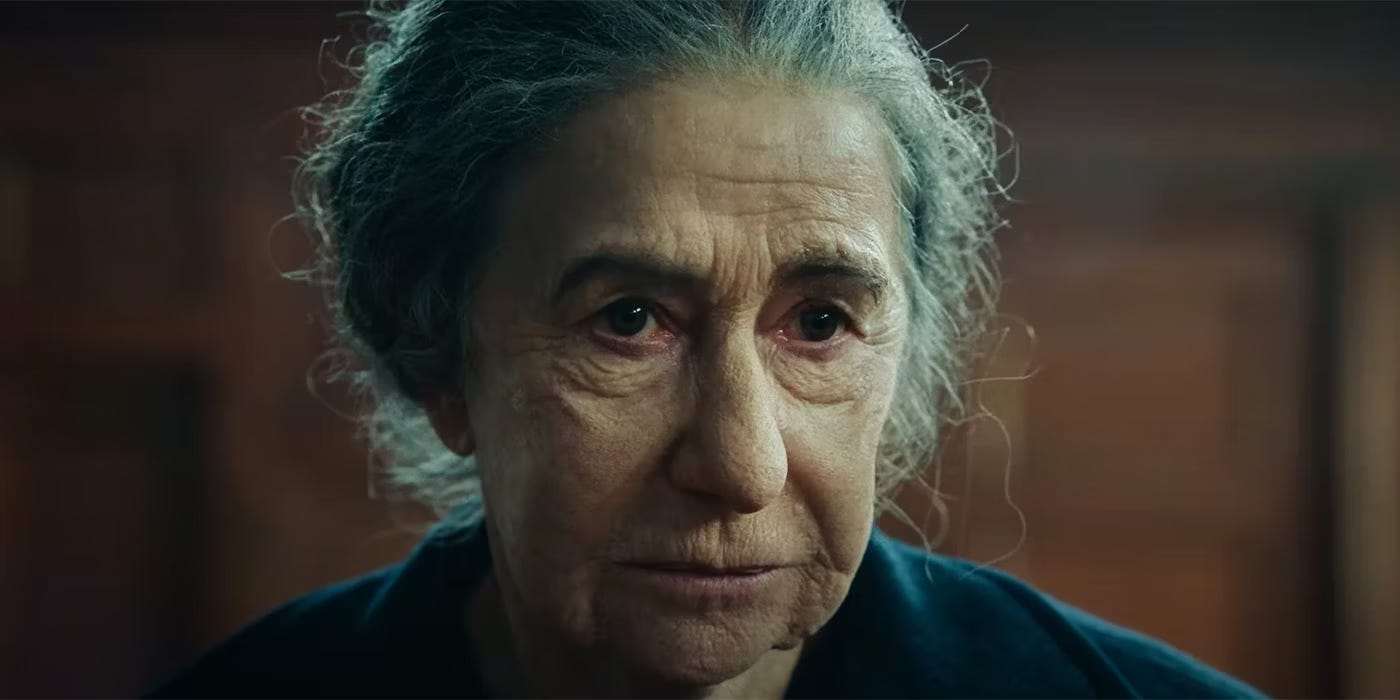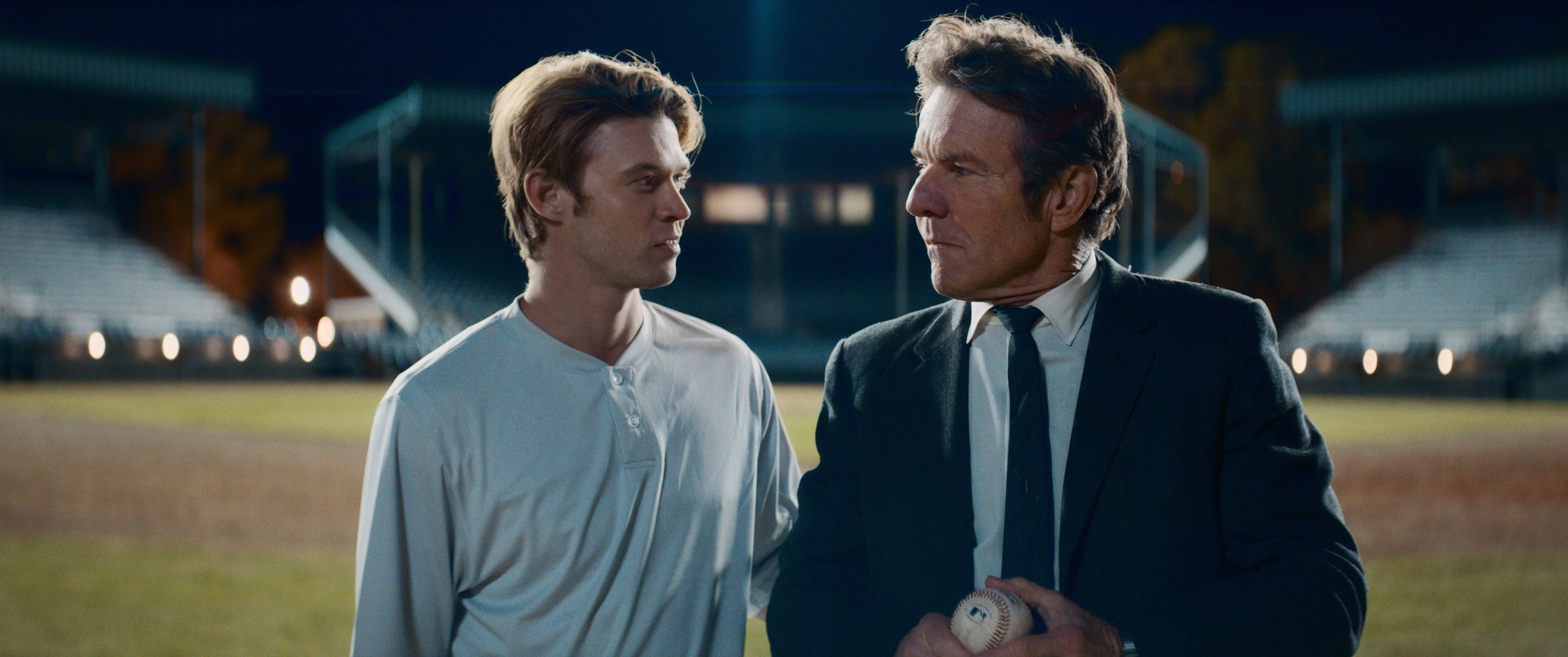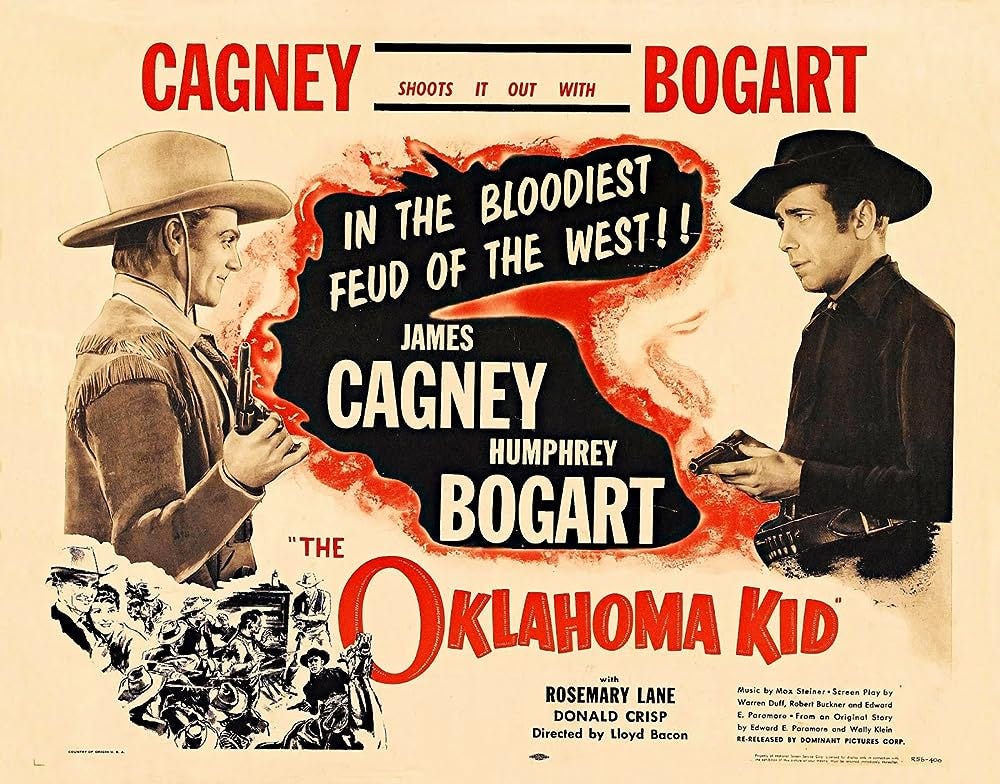What to Watch: Late August is Kinda Mid
Reviews of "Golda," "Mutt," "The Hill," and more

More end of summer dog days in theaters, but I’m willing to take a trawl through some of the curiosities and contenders premiering in theaters this week. I should note, however, that your best viewing bet is probably to stay at home and stream Celine Song’s “Past Lives”(⭐ ⭐ ⭐ ⭐), which is finally available on VOD and which is as of this moment (i.e., before the fall festival arrival of end-of-year awards bait) my pick for Best of 2023. I should also note that “Past Lives” is streaming on Amazon, Apple TV, Microsoft, and Vudu at the premium price of $19.99 but that this is one case where it’s worth paying full freight. I wrote about the film when I saw it at Sundance in January and again when it arrived in theaters in June, so you’re probably sick of me talking about it already – no need to add to my glowing feelings about a very special experience.
The new release I really want to see is “Bottoms,” the sophomore feature from Emma Seligman, who gave us the hilariously utz-y comedy “Shiva Baby” (2020). That movie’s star, Rachel Sennott, is also in “Bottoms,” which is apparently about two high school lesbians (the other is played by Ayo Edebiri of “The Bear”) who start a fight club so they can seduce cheerleaders. It looks to be disreputable in all the best ways. Unfortunately, the film’s distributor has been weirdly cagey with screenings or links for critics outside the NY/LA markets, which means that the movie’s either a disaster or the marketing team doesn’t understand it. Given that it’s Seligman, bet on the latter. “Bottoms” will be arriving in Boston next week, by which time I should have caught up with it. The trailer is here. In its stead, I give you:

“Golda” (⭐ ⭐ 1/2, in theaters), which stars Dame Helen Mirren (above) as Israeli Prime Minister Golda Meir and thus promises cognitive dissonance of an unusually high order. And it delivers during the opening scenes, as viewers may have to adjust their internal horizontal hold to adapt to a heavily made-up Mirren who sounds like Marge Simpson and looks alarmingly like Tommy Lee Jones in drag. But it’s a committed and earnest performance that allows us to settle into it, except for one gruesome bit late in the going where Mirren’s face is digitally transposed onto Meir’s head in archival footage. The movie, written by Nicholas Martin (“Florence Foster Jenkins”) and somewhat over-directed by Guy Nattiv, is modeled on bones similar to the 2017 Winston Churchill biopic “Darkest Hour,” with a legendary leader guiding her country through an existential crisis from a series of war rooms packed with government officials. The crisis is the 1973 Yom Kippur War, which I knew little about and now know a great deal thanks to the movie: How Egypt and Syria made a double-fronted surprise attack that shouldn’t have been a surprise and how Meir shouldered the blame for the mistakes of others (including a Moshe Dayan who, in Rami Heuberger’s performance, is a cowardly weenie whose response to the Syrian tank assault is essentially, “Game over, man!”). So it’s a war film told from a statewoman’s point of view, which both works and doesn’t. The strategizing, arguing, and political backbiting make for juicy drama, but the choice to “see” crucial battle sequences only through the headphones of Meir and her cabinet ministers as they listen in from the underground HQ in Tel Aviv is a choice that pays off once – when the audio carnage carries an awful jolt – and is increasingly dubious thereafter. I’m sure it was easy on the budget: Why film war scenes if you only have to hear them? But it only adds to the air of gimmickry in “Golda,” and I’m enough of a cynic to snort at the deployment of a Leonard Cohen song over the closing credits as a parting act of camp. But there will be viewers who will take this movie to heart, and to them I say God speed rather than oy gevalt.

“Mutt” (⭐ ⭐ ⭐, in theaters) is 24 hours, more or less, in the life of a young trans man in Brooklyn – hours so packed with events, microaggressions, and quotidian disasters as to test the audience’s patience as much as the main character’s. Still, it’s rooted in the experiences of its maker, writer-director Vuk Lungulov-Klotz, and presumably those of its star, the tensely charismatic Lio Mehiel (above) — like his character, Feña, a female-to-male transexual navigating an uncertain world not long after having top surgery. The movie is bracingly frank in acknowledging the complex crossroads of gender, body, and desire: Feña bumps into his pre-op boyfriend (Cole Doman) at a club and both find to their surprise that feelings don’t change even when bodies do. Lungulov-Klotz piles on the calamities and characters: Feña’s runaway teen sister (MiMi Ryder), a judgmental Chilean dad (Alejandro Gojic), and an entire, bristling New York City of allies and potential enemies – a scene where Feña tries to cash a check made out in his deadname is a little symphony of insult and erasure. “Mutt” doesn’t really travel anywhere except in circles around its beleaguered hero’s falling and rising sense of self-worth. But that’s enough, especially for audiences that need to see this movie but probably and sadly won’t.

“The Hill” (⭐ ⭐ 1/2, in theaters) I can be wary of Christian “faith-based” cinema, especially when the specific goal is to preach to the converted or proselytize to the un-, but “The Hill” is interesting, dramatically and thematically, because it’s a movie whose faith is pretty evenly divided between the Lord and baseball and because the onscreen conflict is between a Bible-thumping patriarch (Dennis Quaid, neck veins a-throbbing) and his batting phenomenon son (Colin Ford). It’s the ”based on a true story” story of Ricky Hill, who in the early 1970s pursued his dream of playing professional ball despite a degenerative spine disease that had his legs in braces from childhood. Everyone believes in the kid – mom (Joelle Carter), older brother (Ryan Dinning), little sister (Carina Worm), sweet-faced love interest (Siena Bjornerud) – with the exception of Pastor Dad, who disapproves of baseball cards (“they sell the image of false idols”) and thinks God’s plan for Ricky involves the cross rather than the diamond. Jeff Celentano directs “The Hill” like a Sunday sermon version of “Rudy,” and while the movie has its cliches and missteps – like a generically treacly score that never lets up and the Memaw fright wig they’ve stuck on poor Bonnie Bedelia, who plays the hero’s feisty, God-fearin’ grandma and who I hope got combat pay – that central generational struggle is as old as the Bible (and “The Jazz Singer”) and still dramatically compelling. Is the prodigal son actually a prodigy? Can a parent ever truly see their child? “The Hill” hangs these themes on a scaffolding of Christian faith that is corny in ways both off-putting and honest, and it reaches back, consciously or not, to the baseball films of Hollywood’s earliest days, when Charles Ray became a star hitting homers despite a doubting dad in “The Pinch Hitter” (1917).

Classic of the Week: “The Oklahoma Kid” (1939, ⭐ ⭐ ⭐) – Warner Bros. got tired of sticking James Cagney and Humphrey Bogart in urban crime films, so they decided to stick them in a Western instead. A B-Western, when all is said and done, but with the Warners’ typically hard nose in matters of class tensions and who’s getting screwed (Native Americans) by whom (Tulsa land-rush barons). Mostly it’s a hoot to see Jimmy and Bogey – the latter still getting second-billed but soon to ascend to the A-list in 1941’s “Maltese Falcon” and “High Sierra” – wearing chaps and letting their hair down. It has been pointed out by others that we never see Bogart actually getting on a horse (he just approaches the beast, there’s a cut, and he’s in the saddle), but we do get to hear Cagney sing “Rock-a-Bye Baby” in Spanish, and that’s almost worth the price of admission in itself. (On Turner Classics Sunday afternoon at 12:45; also for rent at Amazon, Apple TV, Google Play, Vudu, and YouTube.)
Have a great weekend! If you’ve found today’s newsletter at all useful, won’t you consider supporting the Watch List by becoming a paid subscriber?
As usual, your comments, stray or otherwise, are welcome.
If you enjoyed this edition of Ty Burr’s Watch List, feel free to pass it along to others…
Or give a paid Watch List gift subscription to your movie-besotted friends…
Or refer friends to the Watch List and get credit for new subscribers. When you use the referral link below, or the “Share” button on any post, you'll:
- Get a 1 month comp for 3 referrals
- Get a 3 month comp for 5 referrals
- Get a 6 month comp for 25 referrals. Simply send the link in a text, email, or share it on social media with friends.





